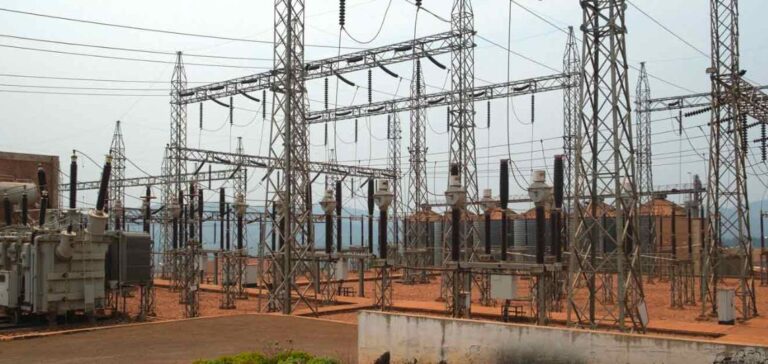Gabon and Equatorial Guinea have officially linked their electricity networks, inaugurating an energy cooperation initiative aimed at addressing power deficits in northern Gabon. The ceremony took place in the border town of Ebebiyin, in the presence of the heads of state of both nations.
This initiative allows Gabon to immediately import 3 megawatts (MW) of electricity, with a planned increase to 10 MW in the future. The Gabonese presidency stated that this first phase will directly benefit the town of Bitam and its surrounding areas.
A project of the Central African power pool
This connection is part of the Central African power pool, a project designed to integrate electricity infrastructure at a subregional level. The objective is to provide abundant, competitive, and sustainable energy to member countries.
Steeve Saurel Legnongo, interim administrator of the Société d’Énergie et d’Eau du Gabon (SEEG), stated that this interconnection will inject reliable energy into the northern grid. He also pointed out that SEEG’s existing infrastructure is outdated, contributing to frequent disruptions in electricity supply.
Measures to stabilise electricity supply
Faced with recurring blackouts, particularly in the capital Libreville, Gabonese authorities have undertaken several measures to stabilise electricity supply. A protocol agreement has been signed with the Turkish company Karpowership to provide an additional 70 MW through two floating power plants, at a monthly cost of 1.8 billion CFA francs (approximately 2.74 million euros).
Max Olivier Obame Ndong, spokesperson for the Gabonese presidency, indicated that these measures should lead to a gradual improvement in the situation over the coming days or weeks. However, ongoing power outages continue to fuel public discontent ahead of the presidential election scheduled for 12 April.
This energy cooperation between Gabon and Equatorial Guinea reflects a growing trend in Central Africa to strengthen regional infrastructure to address shared energy challenges.






















